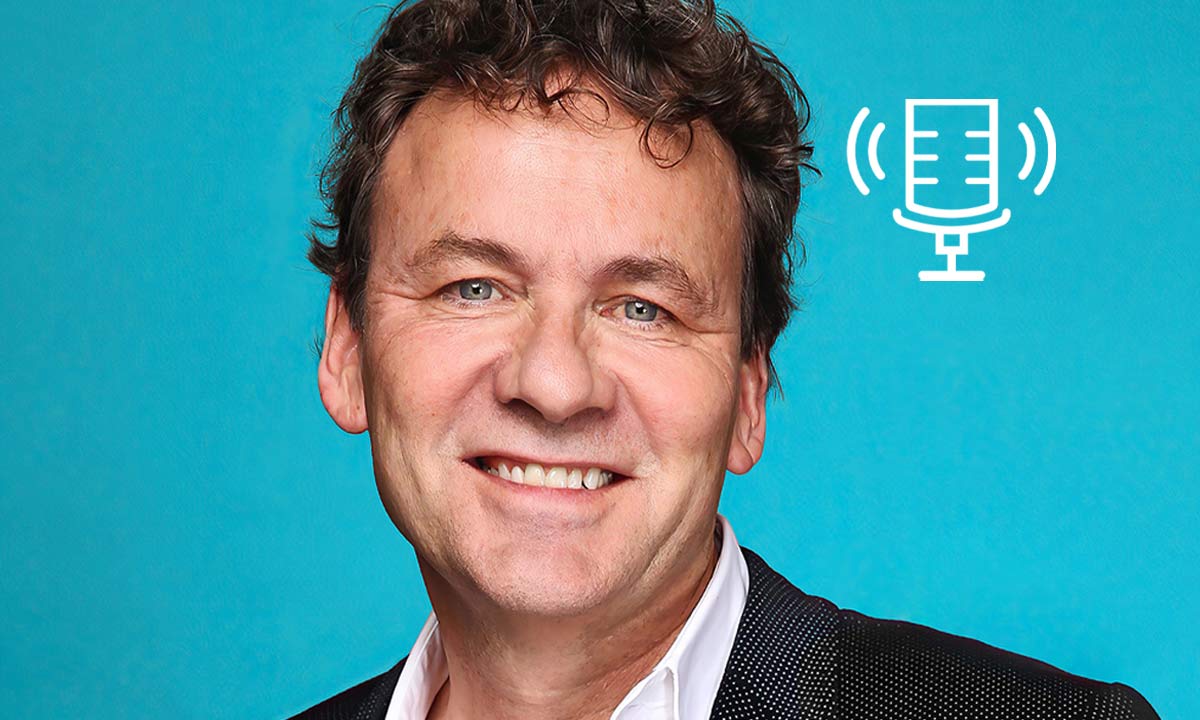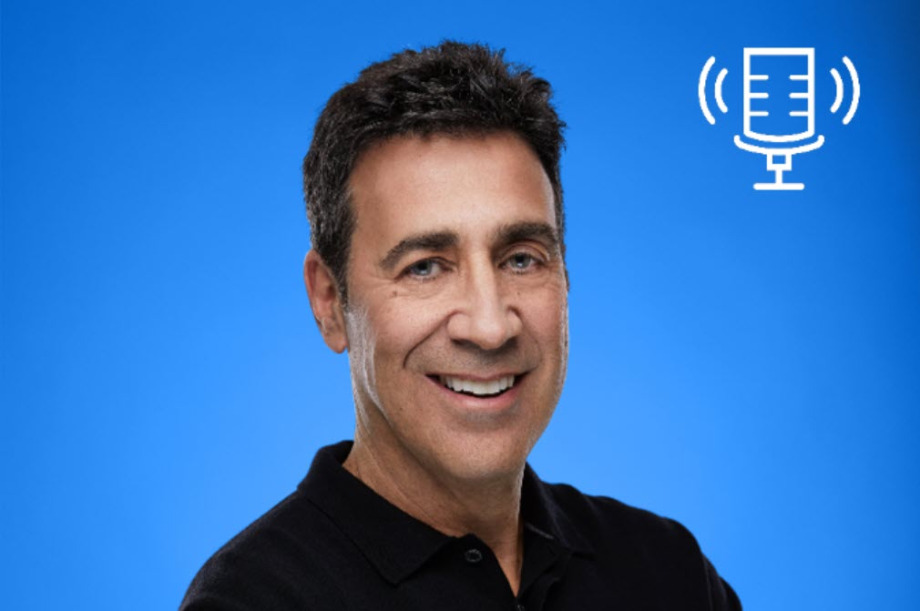Throughout the year, Tony Chapman has interviewed dozens of people on his Chatter That Matters podcast who do extraordinary things to make positive changes in the world. Here are 5 simple ways to be a force of change — with tips from Chapman’s guests on how to take small steps towards a meaningful difference in 2022.
1. Reduce food waste
Globally, a third of food produced for human consumption is lost or wasted. 900 million tons are thrown away every year, with more than 60% of this waste coming from homes. The negative impacts of food waste are significant — beyond the social and economic effects, it’s estimated 8-10% of global greenhouse gas emissions are associated with food waste.
Thankfully, reducing food waste can be a simple change that may make a big difference. A recent study conducted by Hellmann’s found the main reasons people throw away food at home include forgetting what’s in the fridge, freezer or cupboard, or not knowing what to make with left-behind ingredients.
Kelly Peters, CEO & co-founder of BEworks, Hellmann’s research partner on the study, and Chapman’s guest on April 16th, shared with Chapman how reducing food waste comes from shifting mindsets away from, “What do I want to eat and what do I want to buy‘ to ‘what food do I have on hand and what can I make from that?”
Reducing food waste doesn’t mean making big changes to the way you buy, store and cook food. Rather, it can be done with small, simple steps that involve very little time and effort. In fact, by using food you have on hand instead of buying something new once a week, you can reduce the amount of food thrown away by a third. Imagine if every Canadian implemented a “use up day?” Now that’s a small change that can help make a big impact!
2. Add more nature to your life
Most Canadian see climate change as an insurmountable challenge. “It’s daunting. It’s beyond many of our imagination,” says John Stackhouse in the Net Zero Matters episode of Chatter That Matters. As such, he suggests breaking down the problem into manageable, bite-sized pieces.
Megan Leslie from WWF-Canada, who joined Chapman for the Earth Day episode on April 22nd, suggests ways Canadians can do their part to combat climate change by re-introducing some nature to their corner of the planet, bringing back natural habitat where our lifestyles have encroached on it.
“Let’s say you live in an apartment building and you’ve got a balcony. Do you know pollinators can fly up to six storeys high? So could you plant some pollinator flowers in containers on your balcony. Think about where your kids go to school. Can you work with other parents to find ways to restore some of the habitats in the school yard?”
WWF-Canada found Canada could reach a third of its Paris targets through the restoration of nature alone. “Let’s turn to nature to help fight climate change,” urges Leslie. At the same time, our communities can enjoy more green space. It’s a win-win.
3. Become an ally to Indigenous communities
In 2021, Canadians were shocked by the discovery of unmarked graves of residential school children in communities across the country. These discoveries are pushing many people to take action.
Sandi Boucher, Chapman’s guest on July 2nd wrote her book The PATH after realizing how many well-meaning, non-Indigenous people had no idea how to help support residential school survivors or Indigenous people whose communities remain impoverished without essential resources for survival.
“People want to help but they are scared stiff of saying the wrong thing and adding to the pain of Indigenous people. They want to do something but there was no action plan — I decided to write one.”
Boucher’s action plan begins with education — a fundamental starting point for anyone looking to become an ally. “First, educate yourself on the situation to understand the differences and realize there are two points of view,” Boucher suggests.
While it may seem passive, taking time to reflect, read and engage in conversation are simple yet important steps you can take in 2022 to understand the history of the residential school system, its tragic legacy on families and survivors, and the long-standing suffering these communities continue to face.
Supporting Indigenous artists, authors and business owners can also help build bridges and advance efforts of reconciliation and donating to communities in crisis can help provide access to the essentials they need to survive and thrive.
4. Lend a skill to someone in need
Mark Brand is one of Vancouver’s most recognized social entrepreneurs. When he joined Tony Chapman on May 28th, he offered his advice to those looking to make social change.
“The first question you have to ask yourself is, ‘what do I care about and why?’” Your list may be long when you begin, but as you write it out, certain areas will likely begin to resonate deeper. After developing this list, Brand suggests asking yourself, “what’s the skill I wish I could use more?” It could be teaching music, coaching basketball, cooking, writing … anything.
When you figure out what skill or activity gives you joy, you can determine how you can find ways to provide access, understanding or opportunity to someone else. Brand says that’s when the magic happens. “I promise you, you will see how easy it is to help others,” he says. Plus, he says you’ll appreciate your own value, which can change your perception of self and what can be possible in the world.
5. Volunteer in youth sports
There are so many ways participation in sports can help benefit youth. Research shows a child’s involvement in sport helps them improve social interactions, increase their confidence, improve their listening skills and their overall health. What’s more, participation in sport can be linked to higher grades, lower dropout rates and lower crime rates.
In Canada, organized sports are largely run by volunteers — without people donating their time, skills and energy, access to sport would be considerably reduced, particularly for low-income families.
Andre De Grasse, known as the fastest man in the world after winning Olympic Gold in the 200m at the Tokyo Olympics, has a passion for giving the next generation of athletes all the opportunities that made him a champion in sport and in life. In 2018, he started the Andre De Grasse Family Foundation, which helps youth reach their potential.
“I really wanted to start that foundation because I remember when I was young and wanting to pursue sports, it was expensive,” De Grasse tells Chapman during the November 19th episode of Chatter That Matters. “It’s expensive to put your kids in sports and provide them with all the resources they need.”
De Grasse’s foundation is designed to inspire and empower kids who wish to pursue sports with a range of resources to give them access and opportunity.
If you’re passionate about youth sports, there are many ways you can help out – even if you have limited skills and experience in the sport you love. From scorekeeping to selling concessions, managing a team’s social media account to fundraising, it’s easy to get involved and help the young people in your community stay active, motivated and engaged through sport.
Finding a way to make a difference can be daunting — it’s hard to know where to start, what to do, or how to make an impact. But through small changes and actions, you can help contribute to a better Canada in 2022.
Want more inspiration? Check out the Chatter That Matters podcast series for more stories about ordinary people doing extraordinary things.
This article is intended as general information only and is not to be relied upon as constituting legal, financial or other professional advice. A professional advisor should be consulted regarding your specific situation. Information presented is believed to be factual and up-to-date but we do not guarantee its accuracy and it should not be regarded as a complete analysis of the subjects discussed. All expressions of opinion reflect the judgment of the authors as of the date of publication and are subject to change. No endorsement of any third parties or their advice, opinions, information, products or services is expressly given or implied by Royal Bank of Canada or any of its affiliates.



















